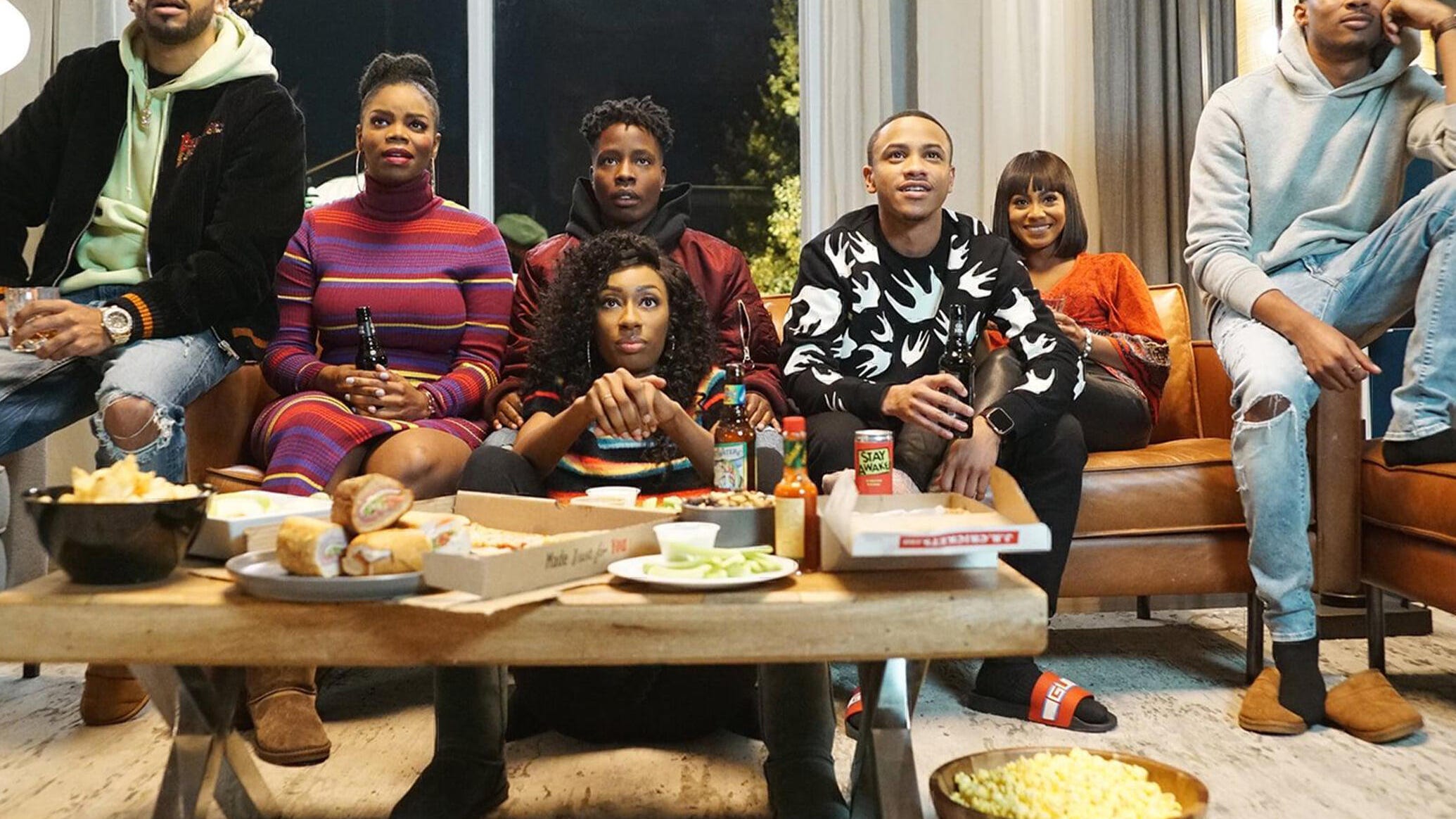
Lena Waithe's Queer, Sex-Positive 'Boomerang' Is A Shining Example of How Not to F--- Up a Classic
It's not just a continuation of a groundbreaking narrative, but also a study in how black creatives have paid it forward.
It's funny in hindsight to read headlines regarding black film in 1992, the year seminal rom-com Boomerang was released. "1992 Has Been A So-so Year For Black Films," the Orlando Sentinel posited. The Los Angeles Times agreed, "A Slimmer Year for Black Films."
A sleek story about a womanizing ad exec whose karma comes via a man-eating colleague, Boomerang was in stark contrast to the 1991 films that opened the floodgates for inner-city stories when gritty movies like Boyz n the Hoodtypified urban life to mainstream masses. Then along came Boomerang, a fun jaunt showcasing urbane life -- upper-class professionals who, also, were Black American. Less thrilling than, say, New Jack City, but no less influential. Over 20 years later, during Black History Month, filmmakers of a new generation continued the aspirational story via a series on BET of the same name.
Emmy-award winning writer and producer Lena Waithe is the executive producer of the television show, along with Halle Berry, for whom Boomerang was her breakout role. Waithe, now 34, was only 8 when the movie was released, but says it was an early obsession. However, she knew the right way to pay homage was not to try to remake the story but to continue it for modern audiences. Waithe, director Dime Davis and showrunner Ben Cory Jones all agreed that it was the spirit of the movie they hoped to capture in their version.
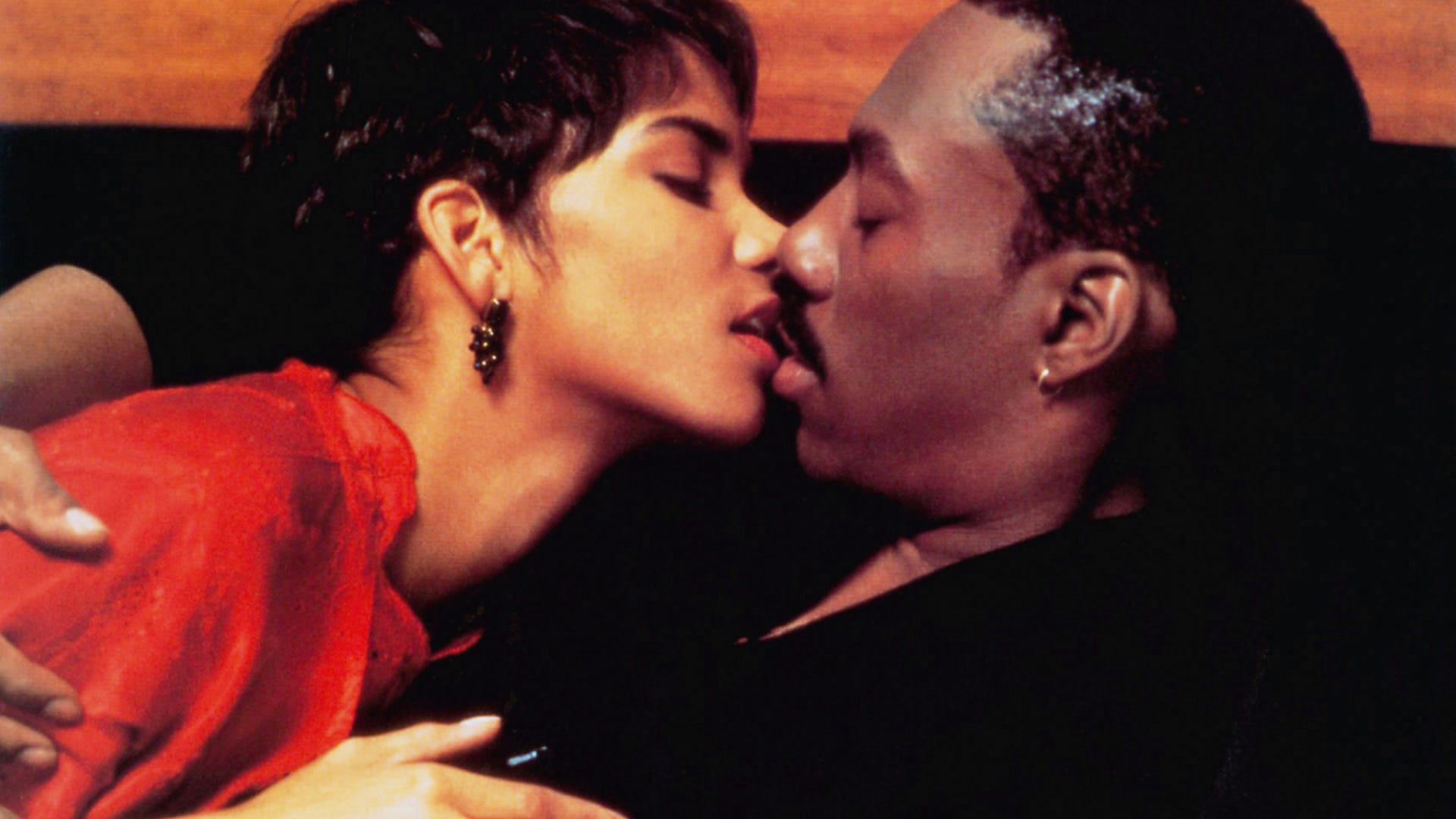
Halle Berry and Eddie Murphy in Boomerbang.
©Paramount/Courtesy Everett Collection"My whole thing when we were setting the vibe for the writers' room, was let's make people feel how the film made us feel because the film made us feel cosmopolitan, it made us feel sexy, it was a universe where it was all black people," Jones said to TV Guide. "When you watch the show, it should make you feel the way Boomerang the movie made you feel."
The way Boomerang the movie felt in 1992 -- and beyond -- was revolutionary. By countering black suffering with black sophistication, Boomerang shifted the paradigm. Marcus Graham (Eddie Murphy) was a suave, handsome buppie in Manhattan with all the trappings of success. His world was one where designer-clad black professionals attended galas and lived in dazzling two-story flats. The sex appeal and style were further conveyed through its contemporary aesthetic. Today, Davis' lens casts a similar patina on her actors. But even as she calls back to the movie in savvy ways, the tone is sharper, brighter, more spinoff than a sequel.
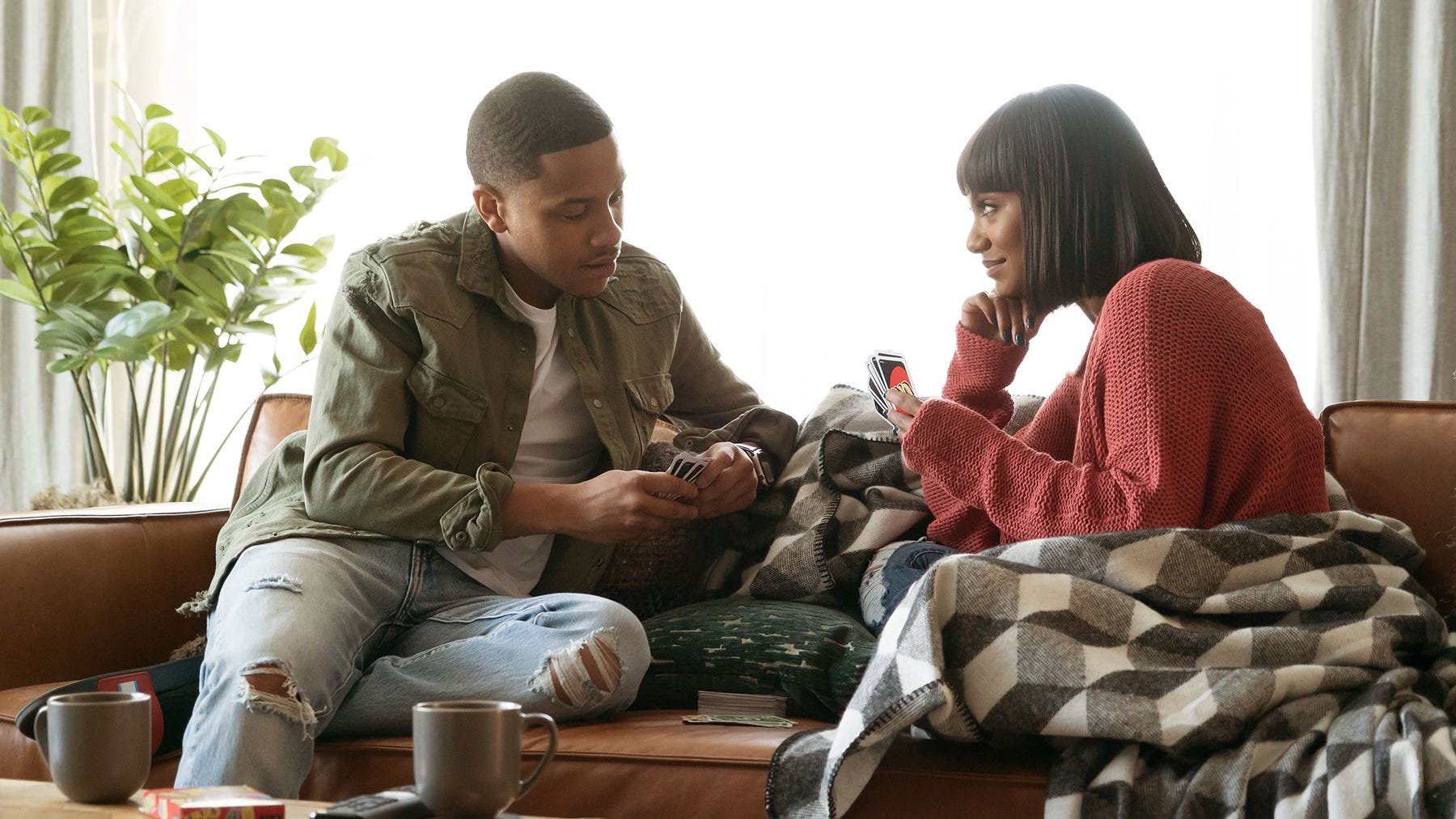
Tetona Jackson and Tequan Richmond in BET's Boomerang.
"Dime definitely created a whole new visual language that's really I think unlike anything else. Yes, there's really cool shows with black people in them that look cool, but I think that Dime's vision is very specific, and that's really what we wanted," said Waithe.
It has a feel that could live on HBO, FX, or a number of networks considered more edgy than BET. That, too, was by design: "It's time to give BET a show that's layered, a show that's complicated, a show that's not easily digestible but that's fun and that's sexy," Jones said.
The movie ends with Marcus finding happily ever after with Angela (Halle Berry), an art director and friend he'd ignored while chasing the woman who had him eating out of the palm of her hand, Jacqueline (Robin Givens). Today's rendering centers on those characters' imagined offspring. It's one of several creative liberties pilot co-writers Waithe and Jones take to expand lovingly upon the cinematic foundation, and at times, to correct some of its pain points. The playground relocates to Atlanta (no one in New York can afford apartments that large), a smart move considering the city is a current mecca for upwardly mobile black professionals. Marcus and Angela's daughter, Simone (Tetona Jackson), now 26, is desperate to leave the agency they founded and step out of their shadows; Jacqueline's son Bryson (Tequan Richmond) wants to be Marcus Graham and get with Simone, who isn't interested in commitment with anybody. It's refreshing to see a woman with agency over her sexuality, where as the movie trafficked in stereotypes based on gender norms. In addition to its misogynistic moments, the film also made homosexuality the butt of several jokes. The series subverts this with Ari, a queer male character who presents as hypermasculine.
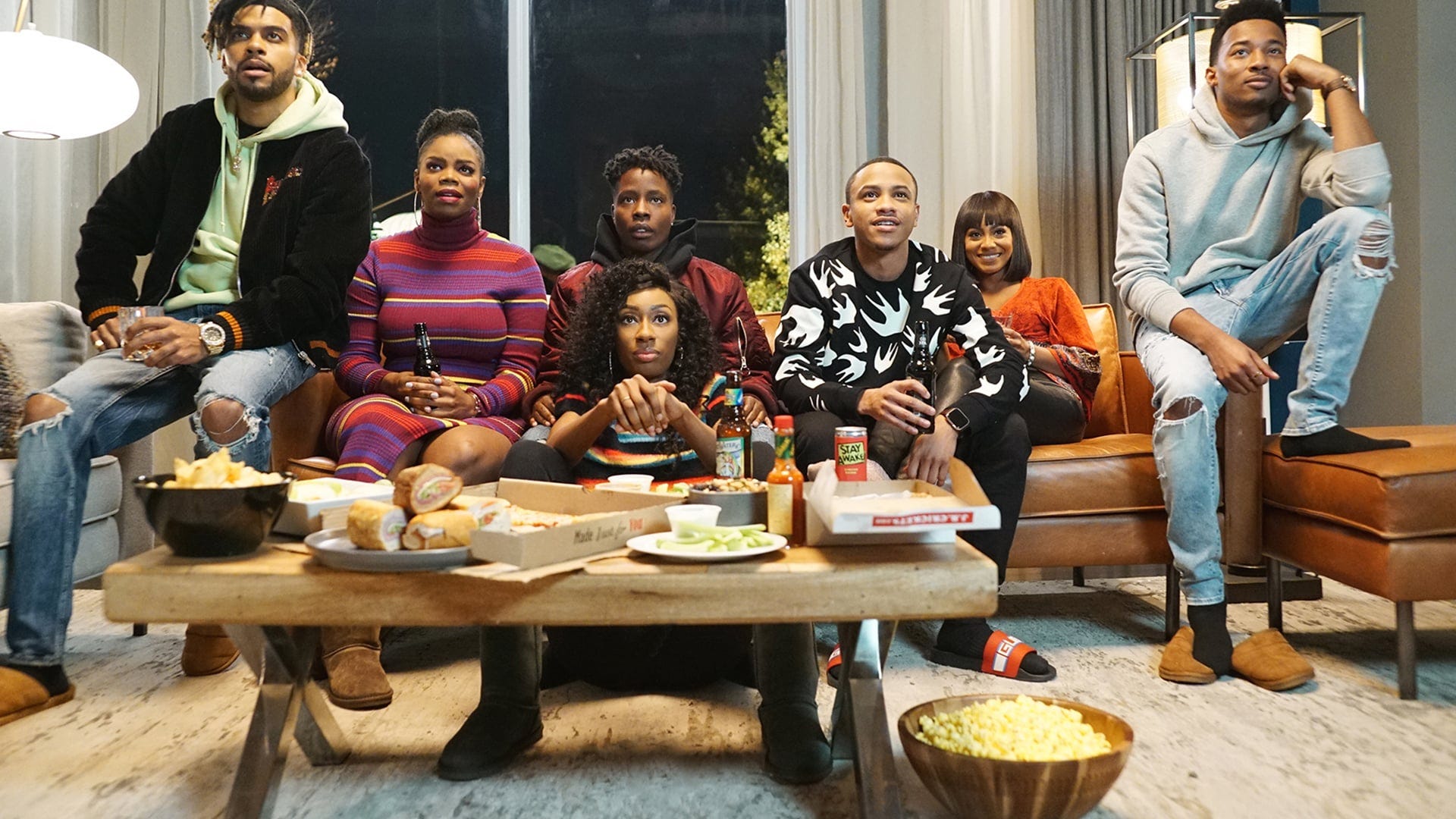
The cast of Boomerang on BET.
Boomerang the film featured a charismatic cast of actors who are legends now but were barely recognizable at the time -- which was a testament to the power and marketability of its star, Eddie Murphy. The legendary comic and actor was only 31 years old at the time and had a five-film deal with Paramount Pictures. He had the juice in a way that few other black actors had ever enjoyed and made boss moves like the ones we see from today's multihyphenates such as Michael B. Jordan and Waithe herself. With the ability to get virtually any project greenlit, Boomerang was the story Murphy chose to tell, and in one fell swoop pushed the careers of Berry, Martin Lawrence, Tisha Campbell-Martin, David Alan Grier, Robin Givens, Lela Rochon, and Chris Rock from if you know, you know to blockbusters. Waithe and her team are hoping to do the exact same thing for a new generation. There are no marquee names in the series cast, and they gave substantive roles to newcomers from other lanes, like rapper Joey Badass and LaLa Milan, a comedic performer who came up on social media. Just like Murphy extended opportunities to overlooked talent, the series producers leaned into their authority to do the same.
"People know LaLa but they've never seen her like this before. She's never had this opportunity to really show her stuff and shine, and I think we really knew what to do with her," Waithe said. "That's a big thing too, everywhere we can we're like where can we break talent, where can we introduce the audience to people they don't know?" Davis echoed her sentiments, saying, "I think that's a thing we forget is like a lot of those people weren't who they are to us today, so they also took risks."
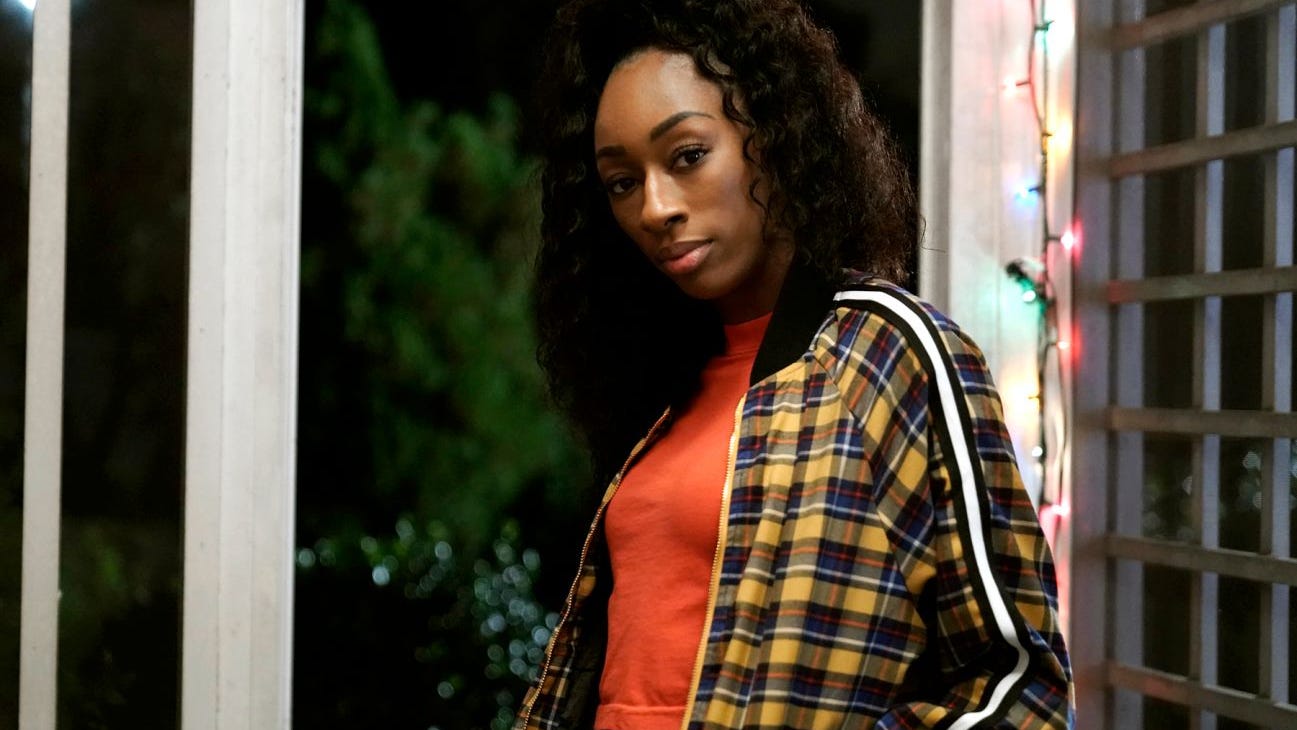
Lala Milan in Boomerang.
At a panel in L.A., it was shared that along with Davis, who directed the pilot and finale, every director for the series is getting their first TV credit. Creating that kind of access for others is the heart of what Black History Month is about -- honoring our predecessors by building upon their foundation. When you look at all the bags Waithe secured in the last year alone, including announcing new projects with Amazon, inking a first-look deal with Showtime, and launching her first series, The Chi, you have to acknowledge that Murphy was integral in paving the road on which today's young creatives walk.
Waithe told the New York Times she'd heard that Paramount and BET had greenlit 10 half-hour episodes, so she went to Halle Berry and said, "I'm thinking about raising my hand to make sure this doesn't get messed up." Consider the self-confidence, the surefootedness Waithe must have to volunteer for a project with this much pressure and visibility. For her to determine that if it is to be done right, it should come through her hands. That, too, is the heritage of Boomerang, which showed us a world where black creatives were fearless, brilliant and empowered.